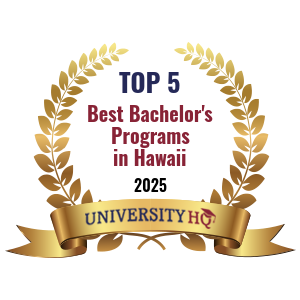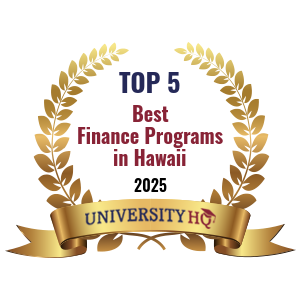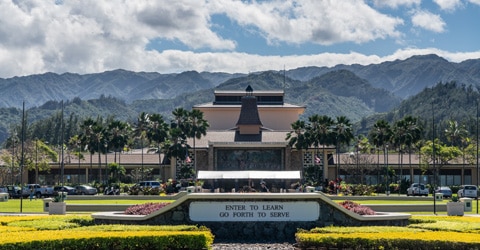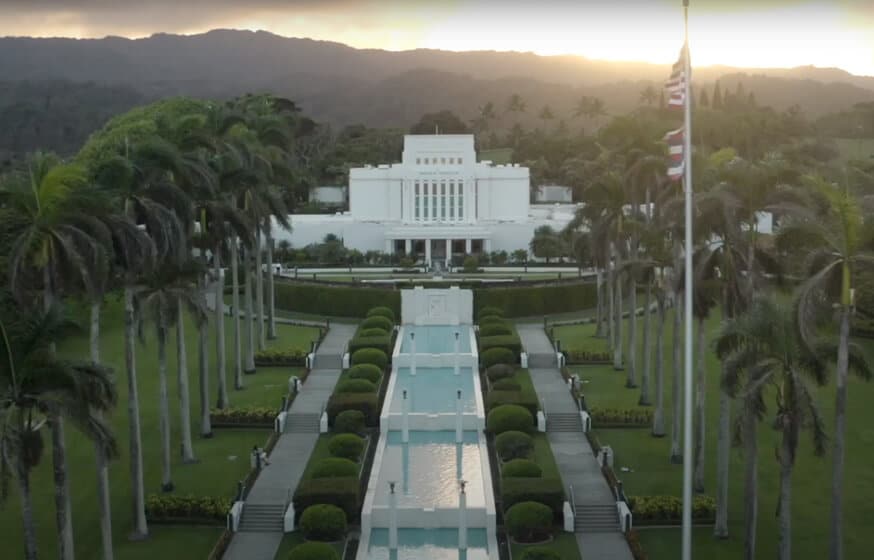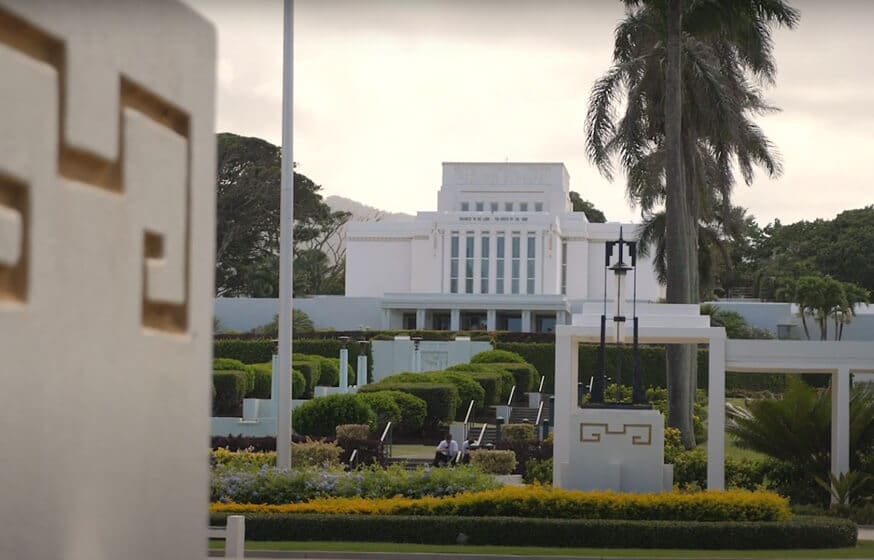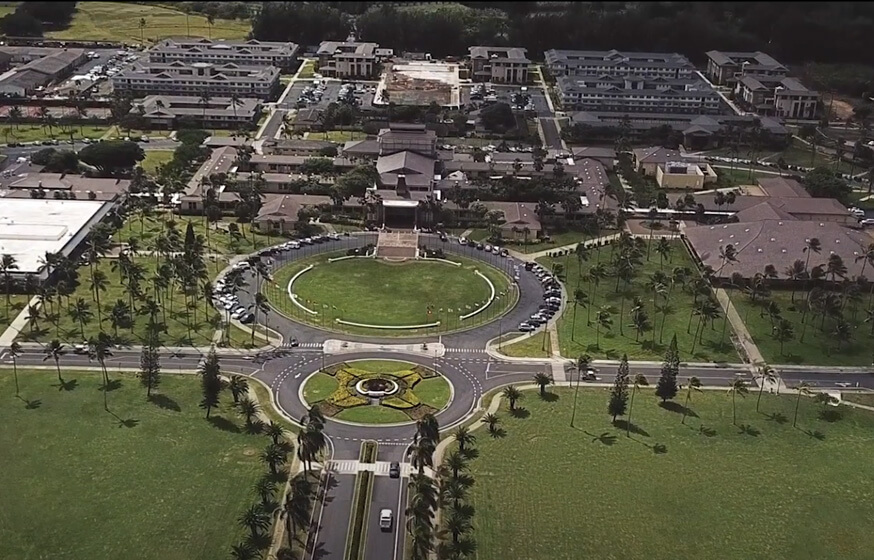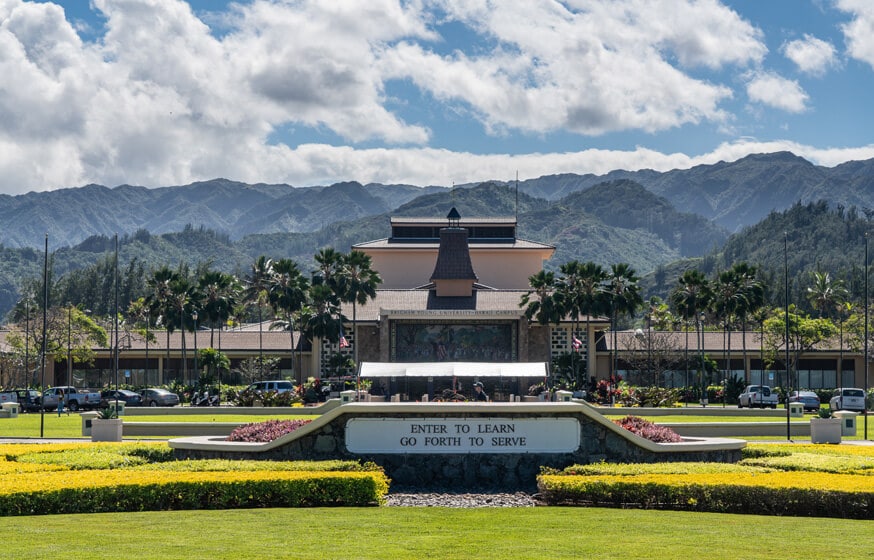University Headquarters (HQ) is an industry-leading, independent educational organization that provides independent college rankings using a proprietary formula to create first class unbiased rankings. The team at University HQ strives to provide accurate and trustworthy rankings that highlights the best programs.
Get Matched With Online Colleges
Let’s say you have decided that you’re going to spend four years at Brigham Young University in Hawaii. If you look around you as you get ready to take your belongings to your dorm room, you’ll see a beautiful campus filled with green space. You won’t be far from the Pacific Ocean as Lai’e is close to the coast. If you love to spend time on the beach or in the water, you’re going to school in just the right place.
Search All Programs
Overview of Brigham Young University - Hawaii
While the campus looks small, it has plenty of green space on the rugby field and in between the campus buildings. It’s easy to figure out what is campus and what isn’t, especially since an easy boundary in the form of an oval street surrounds the physical campus; this is Academic Oval.
BYU-Hawaii sits on the fringes of the small town of Lai’e. It’s a private, not-for-profit school affiliated with the Church of Jesus Christ of Latter-Day Saints. The student population is not very large, with just under 3,100 students enrolled most years. The student-to-faculty ratio is 16 to 1 and the entire student body is composed of undergraduate students.
General Information
| School Type | Private not-for-profit |
|---|---|
| Campus Setting | Town: Fringe |
| Campus Housing | Yes |
| Student Faculty Ratio | 16:1 |
| Graduation Rate | 65% |
| Year Founded | 1955 |
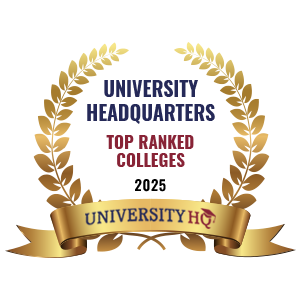
Student Enrollment
Total Students3,096
3,096
0
Undergraduate Student
Male 1,176
Female 1,920
Graduate Student
Male 0
Female 0
Explore Map
Top Rankings For Brigham Young University - Hawaii
Admissions
APPLICATIONS973
ACCEPTANCE944
Acceptance Rate97%
Enrollment 519
| Admissions | |
|---|---|
| Application Fee | $35 |
| High School GPA | Required |
| High School Rank | Recommended |
| High School Transcripts | Required |
| College Prep Courses | Recommended |
| Recommendations | Required |
| SAT/ACT | Required |
| TOEFL (Test of English as a Foreign Language) | Required |
| Application Deadline | February 1 |
| Common Application Accepted | No |
Tuition Cost & Financial Aid
It may be surprisingly inexpensive to pay for school at BYU-Hawaii. The expected total price, as of a very recent school year was $19,776. This amount should cover tuition, books, supplies, room and board, and other costs.
Still, you and your family likely won’t have to pay the full amount if you are approved to receive financial aid. Instead, some of this cost will be offset by the aid for which you are eligible. What is left after financial aid is applied is called the average net price. In that same year, this was $12,679 on average. If your family makes significantly more or less, that remaining cost may increase or decrease because that will affect how much financial aid you can receive. In recent years, families who earned up to $30,000 paid around $9,863; if they earned between $75,001 and $100,000 they paid closer to $17,091.
As for financial aid, 81% of beginning students qualified for this assistance and 77% received grants or scholarships averaging $6,209. Slightly fewer (68%) received about $4,195 in institutional grants and scholarships.
| Average net price | 2018-2019 |
|---|---|
| Net Price | $12,679 |
| Average Total Aid | $6,209 |
| Students Receiving Financial Aid | 81% |
| Room & Board | $6,708 |
Sticker Price
- Tuition In-State - $5,720
- Tuition Out-of-State - $5,720
- Books and Supplies - $1,300
- Room & Board - $6,708
- Other - $6,048
Academics
As a freshman in a school that’s new to you, it wouldn’t be surprising for you to feel overwhelmed. It may take you some time before you decide whether you’re going to stay at BYU or go to a different school. If and when you do decide to return for your second year, you’ll become part of the 61% retention rate. This percentage measures the freshman students who return for their second year of school and shows that the majority of students do.
The 4-year graduation rate is 31% and the 6-year rate is 51%. Bother of these are lower than the average. Students may have a variety of reasons for staying on at school longer than the expected four years.
The most popular degree programs offered here are business management and marketing, education, multi/interdisciplinary studies, visual and performing arts, and biological and biomedical sciences.
Retention
Rate
4 year
Graduation
Rate
6 year
Graduation
Rate
Student Population Total
Student Population 3,096
3,096
0
Most Popular Programs & Majors
(# of Diplomas Awarded by Subject)
| All Business Majors | 164 Total Graduates / 27% |
|---|---|
| Accounting | 43 Graduates |
| Hospitality Administration/Management, General | 36 Graduates |
| Marketing/Marketing Management, General | 25 Graduates |
| Finance, General | 21 Graduates |
| All Education Majors | 74 Total Graduates / 12% |
| Elementary Education and Teaching | 38 Graduates |
| Teaching English as a Second or Foreign Language/ESL Language Instructor | 20 Graduates |
| Physical Education Teaching and Coaching | 5 Graduates |
| Social Science Teacher Education | 4 Graduates |
| Multi/Interdisciplinary Studies | 64 Total Graduates / 11% |
| Intercultural/Multicultural and Diversity Studies | 23 Graduates |
| Multi-/Interdisciplinary Studies, Other | 21 Graduates |
| Cultural Studies/Critical Theory and Analysis | 20 Graduates |
| Visual and Performing Arts | 44 Total Graduates / 7% |
| Graphic Design | 28 Graduates |
| Painting | 7 Graduates |
| Voice and Opera | 5 Graduates |
| Music, General | 4 Graduates |
| All Biological & Biomedical Majors | 44 Total Graduates / 7% |
| Biology/Biological Sciences, General | 14 Graduates |
| Biomedical Sciences, General | 12 Graduates |
| Marine Biology and Biological Oceanography | 9 Graduates |
| Biochemistry | 5 Graduates |
| All Other Diplomas | 35% |
Outcome & Salary
Once you walk your way across the stage at graduation, you should be ready to start a new job with a pretty decent salary. BYU-Hawaii graduates have an average early career salary or $65,900 and a mid-career salary averaging closer to $105,600. Their average salary overall sits at about $63,190.
With these numbers in mind, your 10-year salary earnings potential is $631,900 and your 20-year earnings potential rises sharply to $1,687,900. Now, if you subtract your 4-year cost of education, averaging $50,716, from your salary earnings potential, this puts your 10-year projected return on investment (ROI) at $581,184. Your 20-year projected ROI is $1,637,184.
High school graduates who don’t go to college earn a national average salary of $38,792. Their 10-year projected income is $387,920 and their 20-year projected income is $775,840.
| Graduates Salary | |
|---|---|
| College Grads Early Career Salary | $54,900 |
| College Grads Average Salary | $63,190 |
| College Grads Mid Career Salary | $105,600 |
| Return on Investment (ROI) | |
|---|---|
| 10 Year Salary Earnings Potential | $631,900 |
| 20 Year Salary Earnings Potential | $1,687,900 |
| Cost of Education (Net Price) 4 Year | $50,716 |
| 10 Year Projected ROI | $581,184 |
| 20 Year Projected ROI | $1,637,184 |
| No College Education Salary Comparison | |
|---|---|
| National Average Salary | $38,792 |
| 10 Year Projected Income | $387,920 |
| 20 Year Projected Income | $775,840 |
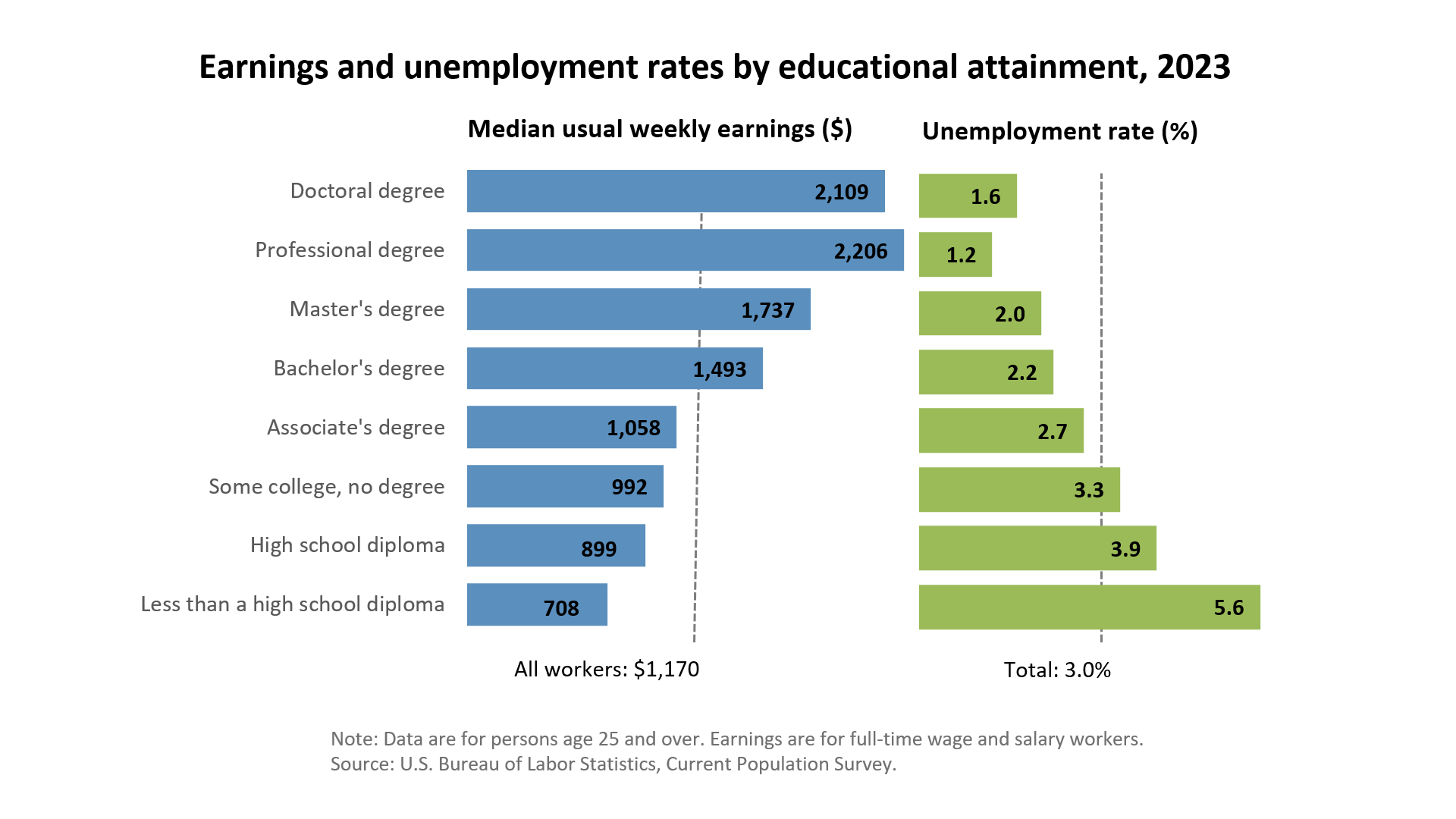
Related Top College Resources

